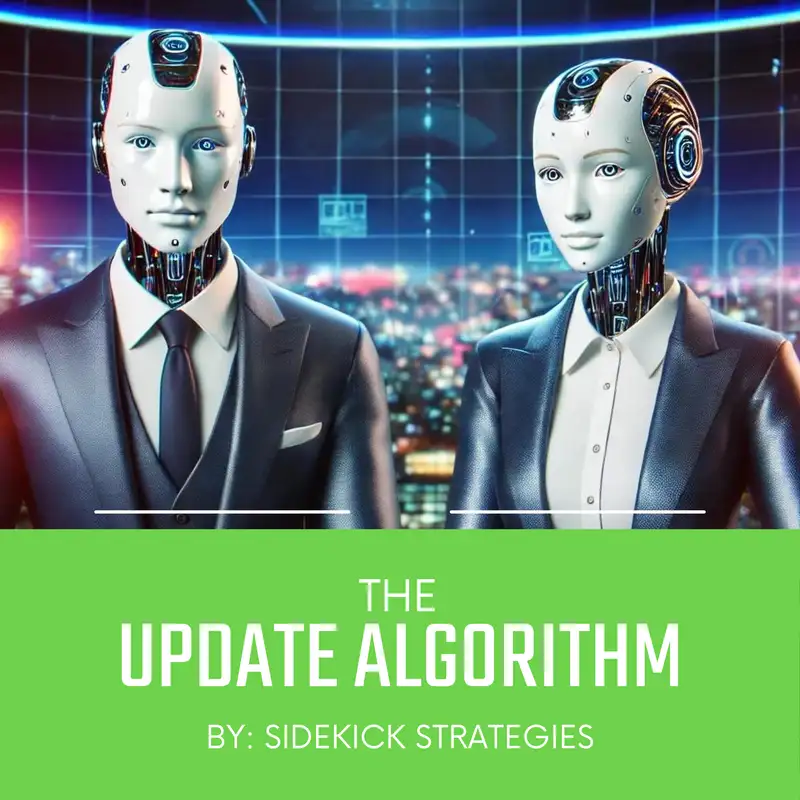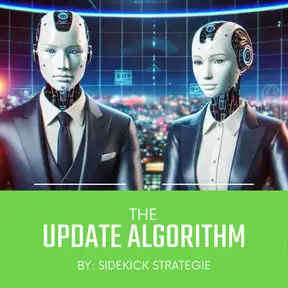
HubSpot Update: SUNSET: Automatic ticket assignment for sales-seated users in Help desk
Alright, everybody. Buckle up because today's deep dive is gonna take us straight to the heart of HubSpot land for an update that's got people talking.
Ben Binary:Yeah. I've seen some buzz about this one.
Luna Logic:It seems kinda small on the surface, but, honestly, it kinda reveals where a lot of software is headed these days. You know what I mean?
Ben Binary:Yeah. Totally. Sometimes it's the little changes that, Yeah. That tell a bigger story.
Luna Logic:Exactly. So HubSpot's help desk, the place where you manage all those lovely customer support tickets, it's changing up how
Ben Binary:it does automatic ticket assignment. Mhmm. And, specifically, it's
Luna Logic:all about sales versus service, assignment. Mhmm. And, specifically, it's all about sales versus service seats if you use HubSpot. You know, these have different powers. Right?
Luna Logic:Well, now only the folks with those service seats get to play in the automatic routing world of help desk.
Ben Binary:And this is where it gets interesting. Right? Because on the surface, it's like, okay. So what? But it really gets into HubSpot's own vision for how these different parts of their platform should be used and who they're really for.
Luna Logic:Yeah. And maybe even how much they want you to pay for the privilege of using them a certain way.
Ben Binary:Uh-huh.
Luna Logic:So in their announcement, HubSpot made a point of saying help desk is for reactive support, and I think that phrase is worth unpacking a little bit. First off, for our listeners who aren't living and breathing HubSpot every day, what does reactive support even mean?
Ben Binary:So reactive support, think of it like, you're fighting fires. Issues pop up and you deal with them as they come in. It's all about that immediate response. Right? Customer needs help right now.
Luna Logic:Gotcha. So it's very in the moment as opposed to what proactive support.
Ben Binary:Exactly. Proactive support is more about, like, anticipating those needs. It's about preventing those fires from even starting in the first place. You see this a lot with, like, customer success initiatives.
Luna Logic:Okay. So HubSpot's drawing a line in the sand here. They're saying help desk. That's for those help
Ben Binary:me right now moments. Like, they're saying this is the lane we've created for help desk. Stay in
Luna Logic:your lane. Uh-huh. Exactly. So to get all those fancy proactive features, you gotta level up to Service Hub. Right?
Ben Binary:Seems like it. And, you know, they even use this phrase in the announcement, opinionated workspace. And every time I see software companies using language like that, I always kinda chuckle.
Luna Logic:Me too. Like, oh, excuse me, software overlords, for I have used your magnificent creation incorrectly.
Ben Binary:Right. But it's basically them saying, look, we put a lot of thought into building this thing, and this is the way we think it works best, even if you stubborn users try to use it differently.
Luna Logic:I totally get it. But, also, like, sometimes those workarounds are born out of necessity.
Ben Binary:You know? Absolutely. Users are creative.
Luna Logic:So let's talk about how this actually plays out in the real world. Give us the rundown what happens in different scenarios.
Ben Binary:Okay. So let's say you're a team that loves those automatic routing rules in help desk. From now on, anyone with a sales seat, they're out of the running. If nobody in those routing rules has a service seat, guess what? The ticket just hangs out unassigned.
Luna Logic:Oh, no. Customer service nightmare. Tickets just piling up in the void.
Ben Binary:And customers are left wondering if anyone is even gonna answer their plea for help.
Luna Logic:It's not a good look. So you basically need at least one service seat on a team to make this whole thing work.
Ben Binary:If you wanna use those automatic routing features, yeah. Otherwise, it's manual assignment all the way.
Luna Logic:And speaking of, the update talks about what happens if the contact owner so that's the point person for customer doesn't have a service seat. What happens then?
Ben Binary:Alright. So let's imagine a ticket comes in. Right? Mhmm. And the contact owner is, say, Bob, who's on the sales team with a sales seat.
Luna Logic:Yeah.
Ben Binary:Now you might think, okay. Let's route this ticket to Bob. He owns this relationship. But because Bob doesn't have a service seat, the system's like, nope. Yeah.
Ben Binary:And it defaults back to the general routing rules. And if those require service seat, well
Luna Logic:No. No. It's like that ticket is stuck in limbo.
Ben Binary:Stuck and potentially unassigned again.
Luna Logic:It's a hot potato of customer service to spare, and it gets even weirder. Right? Like, you can't even manually assign tickets to Teams and help desk unless someone on that team has a service seat.
Ben Binary:I know. Right? You'd think manual assignment would be, like, the override button.
Luna Logic:Right.
Ben Binary:But it shows how much they're really baking this service seat requirement into the core of help desk.
Luna Logic:Like, it's the golden ticket or something.
Ben Binary:Right. You need to even get in the door.
Luna Logic:No. They do mention you can still manually assign tickets to, to individuals who have sales seats.
Ben Binary:Yeah. They threw in that little caveat.
Luna Logic:So is that HubSpot trying to offer an olive branch here? Like, okay. We know this is annoying, so here's a workaround.
Ben Binary:Maybe. It's like a tiny loophole. Yeah. Right. But still, you could see how it could lead to these, these clunky workarounds.
Ben Binary:Like, imagine having to route a ticket to a service team member just so they can immediately turn around and reassign it to the right person in sales.
Luna Logic:Yeah. Not exactly the streamlined efficiency dream, is it?
Ben Binary:Yeah. That's not why people invest in software, you know, to make more work for themselves.
Luna Logic:It really makes you wonder if this whole thing is part of a bigger trend. Like, are we seeing software in general move away from that whole one size fits all approach?
Ben Binary:Oh, absolutely. This HubSpot update, it's a perfect example of something bigger. Software companies, they're realizing they can't be everything to everyone.
Luna Logic:That makes sense. Trying to be everything to everyone usually means you're not really great at anything.
Ben Binary:Exactly. It's much smarter to build more focused tools, you know, tools that are really, really good at solving specific problems for specific types of users.
Luna Logic:So is this, like, a good thing or a bad thing for people who use this software, though?
Ben Binary:It's tricky. Right? It's like, a double edged sword.
Luna Logic:Yeah. Give us both sides.
Ben Binary:So on one side, you have these super powerful specialized tools that could do amazing things. Things that a more general tool could only dream of.
Luna Logic:Like a really, really good chef's knife. It can do things a butter knife can only dream of, but you also need other knives in your kitchen.
Ben Binary:Right. But then here comes the other edge you start needing subscriptions to, like, a zillion different products just to get everything done. That gets expensive, and it can make your whole tech stack a lot more complicated.
Luna Logic:And probably kinda stressful to manage.
Ben Binary:For sure. So it's a balancing act for companies. Do you go for the specialized tools and risk a bigger software bill and more complexity? Or stick with something more general even if it means sacrificing some power and flexibility. There's no easy answer.
Luna Logic:It sounds like this whole HubSpot thing is giving us a glimpse into the future of software and maybe a little homework assignment for all of
Ben Binary:us. I like that homework.
Luna Logic:Yeah. It's time to take a good hard look at the tools we're relying on. Are they still the best fit for what we need, or are we just so used to them that we haven't bothered to see what else is out there? Maybe there's something way better just waiting for us to discover it.
Ben Binary:That's a great point to end on. Always good to reevaluate, especially in the fast paced world of software. What worked a year ago might not be cutting it anymore.
Luna Logic:That is all the time we have for today's deep dive. Hopefully, this whole HubSpot thing gave you some things to think about.
Ben Binary:It definitely got me thinking.
Luna Logic:Until next time, everybody. Keep exploring, and stay curious.
Creators and Guests


